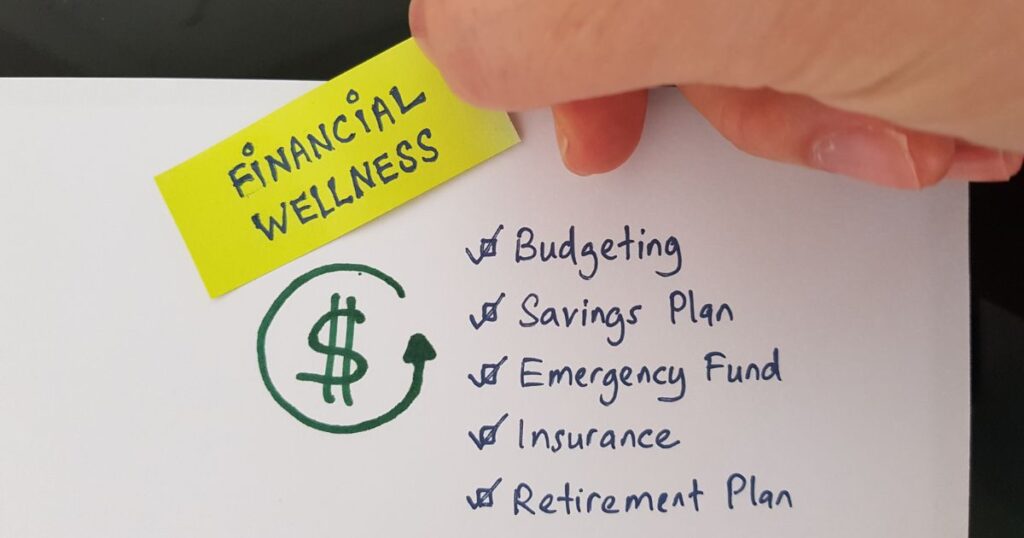Many people look forward to retirement as an exciting stage of life. You may now unwind, follow your hobbies, and savor the results of your effort. However, it’s essential to have a sound financial plan in place if you want to maximize your retirement years. We’ll discuss about the Financial Stages of Retirement in this article and provide you a road map for how to keep your finances secure at this stage of life.
Exploring the 7 Financial Stages of Retirement
Pre-Retirement Stage
The pre-retirement stage typically begins a few years before your intended retirement date. During this period, it’s essential to evaluate your financial situation and make any necessary adjustments to align your resources with your retirement goals. Here are the key steps:
- Review Your Retirement funds: To begin, look through your retirement funds, including your 401(k), IRA, and other investment accounts. Check your savings to see whether you have enough to maintain your preferred standard of living in retirement.
- Estimate the income you anticipate obtaining from sources such as Social Security, pension plans, annuities, or other investments to use in calculating your retirement income. You may use this to assess your financial preparedness for retirement.
- Establish a Budget: Create a thorough budget that takes your anticipated retirement costs into consideration. Take into account elements like the price of healthcare, housing, transportation, leisure activities, and unplanned crises.
- Eliminate Debt: Prioritize paying off high-interest debt, such as credit card balances or outstanding loans. Reducing your debt burden before retirement will provide more financial flexibility during your golden years.
- Consider Long-Term Care Insurance: Evaluate the need for long-term care insurance to protect yourself from the potentially high costs of healthcare services in later life.

Early Retirement Stage
The early retirement stage begins when you first retire and typically lasts for the initial few years. During this phase, you can make adjustments to your financial plan and transition into your desired retirement lifestyle. Here’s what to focus on:
- Review Your Investments: Assess your investment portfolio and ensure it aligns with your risk tolerance and income requirements. Consider diversifying your investments to manage risk effectively.
- Develop a Withdrawal Strategy: Determine a sustainable withdrawal strategy to manage your retirement savings effectively. Consulting with a financial advisor can be valuable in creating a plan that balances your income needs with long-term financial security.
- Fine-Tune Your Budget: After experiencing the first few years of retirement, re-evaluate and fine-tune your budget based on your actual expenses. Adjust as needed to ensure your financial stability in the long run.
- Health Insurance: If you retired before the age of 65, when Medicare eligibility begins, explore health insurance options such as COBRA or private health insurance plans to bridge the gap until Medicare coverage starts.
Mid-Retirement Stage
The mid-retirement stage occurs when you have been retired for several years and are settling into your chosen lifestyle. During this phase, it’s essential to monitor your financial situation and ensure your retirement plan remains on track:
- Regular Portfolio Reviews: Continuously review your investment portfolio to ensure it remains aligned with your goals. Adjust asset allocations, if necessary, based on your risk tolerance and changing market conditions.
- Consider Part-Time Work: If you find yourself wanting to supplement your retirement income or stay active, consider part-time work or consulting opportunities that align with your interests and skills.
- Estate Planning: Review and update your estate plan, including wills, trusts, and beneficiary designations. Ensure your assets are protected and distributed according to your wishes.
- Stay Ahead of Inflation: Account for inflation in your retirement plan and make appropriate adjustments to your budget and investments to maintain your purchasing power.

Late-Retirement Stage
The late-retirement stage is the final phase of retirement, typically when individuals reach their 80s or beyond. During this period, it’s crucial to focus on preserving assets, managing healthcare costs, and estate planning:
- Long-Term Care: Evaluate your long-term care options and consider purchasing long-term care insurance if you haven’t already. Alternatively, explore self-funding or Medicaid planning strategies to cover potential healthcare expenses.
- Review Social Security Strategy: Review your Social Security claiming strategy to ensure you are maximizing your benefits. Consider factors such as spousal benefits and delaying benefits to receive higher payouts.
- Revisit Your Estate Plan: Regularly review and update your estate plan, including wills, trusts, and powers of attorney. Ensure that your plan reflects your current wishes and any changes in your family or financial circumstances.
- Continuously Monitor Finances: Stay vigilant in monitoring your financial situation, track your expenses, and make adjustments as needed. Consult with a financial advisor to ensure your assets are adequately protected and managed.
Legacy Planning Stage
The legacy planning stage is when you start considering how to leave a lasting impact and ensure your financial resources are distributed according to your wishes. This stage typically occurs in the later years of retirement. Key steps include:
- Charitable Giving: If philanthropy is important to you, explore opportunities for charitable giving. Consider establishing a donor-advised fund or creating a charitable foundation to support causes you care about.
- Gifting Strategies: Consider gifting assets to loved ones or beneficiaries during your lifetime to reduce your taxable estate. Consult with an estate planning attorney to determine the most effective gifting strategies for your situation.
- Tax Planning: Work with a tax professional to optimize your estate plan and minimize the tax impact on your beneficiaries. Explore strategies such as establishing trusts, using annual gift tax exclusions, or taking advantage of tax-efficient charitable contributions.

Late-Life Planning Stage
The late-life planning stage focuses on addressing specific financial considerations that arise as you approach the later stages of retirement. These steps can help you navigate potential challenges effectively:
- Longevity Planning: Consider the possibility of an extended lifespan and plan for it financially. Ensure your retirement savings and income sources can sustain you throughout your lifetime
- Healthcare Expenses: As you age, healthcare costs may increase. Evaluate your health insurance coverage, including Medicare supplemental plans (Medicap), and explore strategies to manage healthcare expenses effectively.
- Downsizing or Relocating: Assess your housing needs and consider downsizing or relocating to a more suitable and cost-effective living arrangement. This can help free up equity, reduce expenses, and simplify your life.
- End-of-Life Planning: Have conversations with your loved ones about your end-of-life wishes, including healthcare decisions and funeral arrangements. Consider establishing a healthcare proxy or advance healthcare directive to ensure your wishes are honored.
Ongoing Financial Management
Throughout retirement, ongoing financial management remains crucial to maintain your financial well-being. Key steps include:
- Regular Portfolio Reviews: Continuously monitor and rebalance your investment portfolio to align with your goals and risk tolerance. Consider working with a financial advisor to ensure your investment strategy remains appropriate for your circumstances.
- Budget Monitoring: Regularly review your budget and track your expenses. Make adjustments as needed to ensure you stay within your means and can sustain your desired lifestyle.
- Stay Informed: Keep abreast of changes in tax laws, Social Security regulations, and healthcare policies that may impact your retirement finances. Stay informed about investment trends and strategies to make informed decisions.
- Maintain Emergency Fund: Continue to maintain an emergency fund to cover unexpected expenses or financial setbacks. Aim to have at least three to six months’ worth of living expenses readily available.
Conclusion
Retirement is a multi-stage journey that requires thoughtful financial planning and ongoing management. By considering these additional stages and taking the necessary steps, you can navigate the complexities of retirement and enjoy financial security and peace of mind throughout your golden years. Remember, adaptability and periodic review of your financial plan are essential as circumstances and priorities may change over time.



